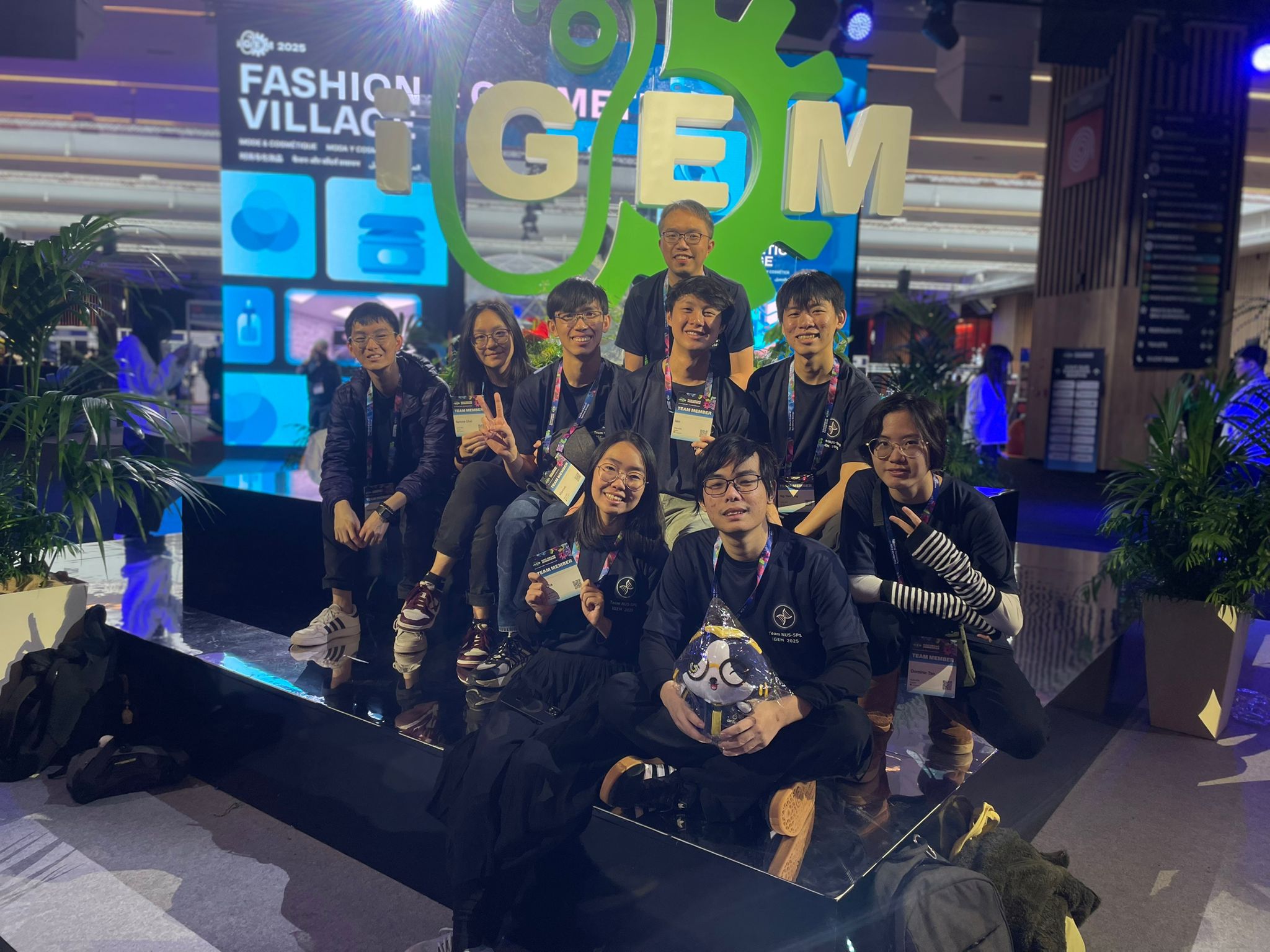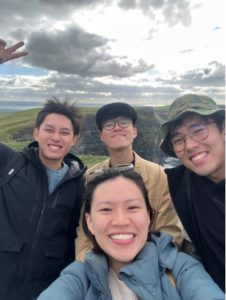The International Genetically Engineered Machine (iGEM) competition is widely recognized as one of the most prestigious student-led events in synthetic biology. What began at Massachusetts Institute of Technology (MIT) in 2004 has since grown into the world’s largest stage for student innovation in the field. Every year, university teams from across the globe spend months designing and building novel biological systems aimed at solving real-world challenges. Their work is then showcased at the multi-day Grand Jamboree, where thousands of students gather to present their projects, exchange ideas, and compete for medals before a panel of international experts.
This year, a 13-member team from the National University of Singapore (NUS), representing the Special Programme in Science (SPS), took part in the competition. The team brought together students from diverse fields such as Life Sciences, chemistry, and computer science.
The team is made up of:
Christine Tan (Life Science)
Dominic Tan (Life Science)
Edison Tan (Life Science)
Goh Zi Jia (Life Science)
Li Yihan (Chemistry)
Liu Peixuan (Life Science)
Marcus Tan (Life Science)
Ng Yao Ting (Life Science)
Samuel Foo (Computer Science)
Seah Bing Heng (Life Science)
Serene Chai (Life Science)
Tan Sze Ian (Life Science)
Ting Jun Rui (Physics)
Mr Derek Yuen (Advisor)
Mr Ku Chee Onn (Advisor)
Dr Lieu Zi Zhao, Robert (Principial Investigator)
By combining both dry lab and wet lab expertise, they developed their project through a blend of computational modelling, genetic circuit design, enzyme engineering, and hands-on experimentation, culminating in a well-rounded and impactful synthetic biology solution.
The team tackled a central challenge in synthetic biology: how to engineer microorganisms that can safely and reliably perform therapeutic functions in complex environments such as the human gut. To showcase their foundational work, they focused on hypercholesterolemia, also known as high blood cholesterol, which is a major global health concern linked to heart disease and stroke. Their objective was to develop a probiotic-based system that can detect and break down cholesterol directly in the gut before it reaches the bloodstream.
To tackle the problem, the team created ECLIPSE (Enzymatic Control using Logic-Based Inducible Promoter System Engineering). This platform brings together two key pillars of synthetic biology: fine-tuned genetic control and enzyme optimization, with the goal of developing smarter, more adaptable probiotic therapies.
In the lab, they worked with E. coli Nissle 1917, a safe, commonly used probiotic strain, and reprogrammed it to produce an enzyme that breaks down cholesterol in the gut. Using computational tools, they improved the enzyme’s efficiency before testing it experimentally. At the same time, the dry lab team built mathematical models and bioinformatics workflows to help predict how the system would behave under different conditions, making the design process more precise and informed.
The core of ECLIPSE lies in its ability to control exactly when and how much enzyme is produced. By combining multiple genetic control layers and using tools like CRISPR interference, the system responds specifically to signals such as dietary cholesterol, ensuring the therapy only switches on when it’s needed.
Combining computational modelling, genetic engineering, and experimental work, the NUS SPS team presented their project, ECLIPSE, at the 2025 iGEM Grand Jamboree and brought home a Silver Medal. It’s a well-earned achievement that highlights their hard work, teamwork, and contributions to the wider research community.
Their success is a great example of the Special Programme in Science in action, where students are encouraged to think across disciplines and take on meaningful real-world challenges. Congratulations to the team for their inspiring work and for representing SPS on an international stage.




